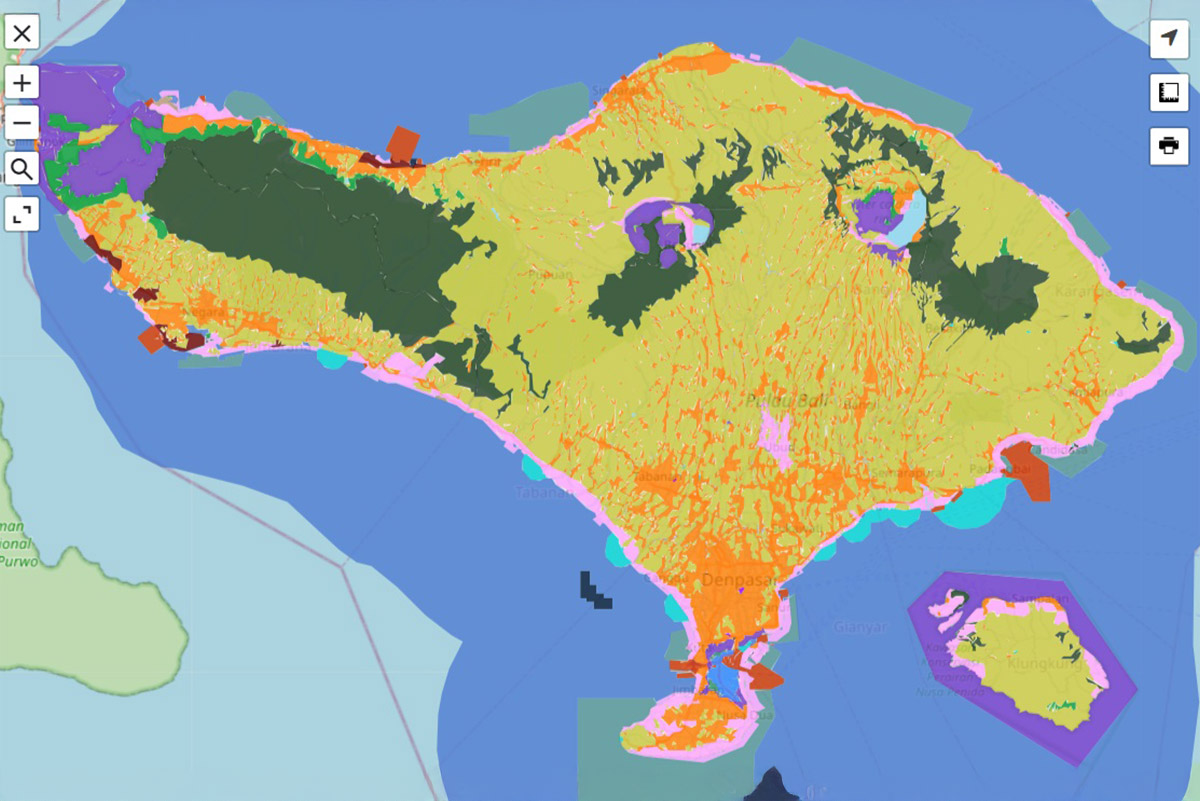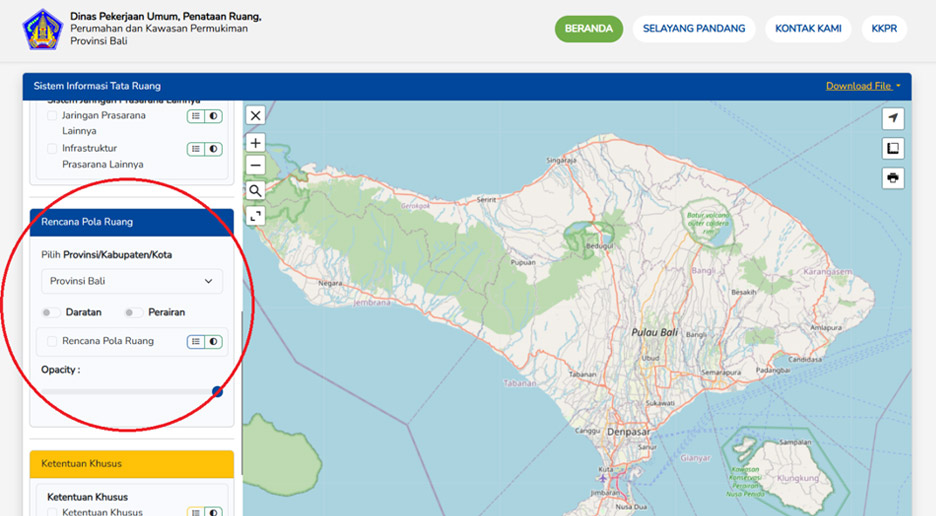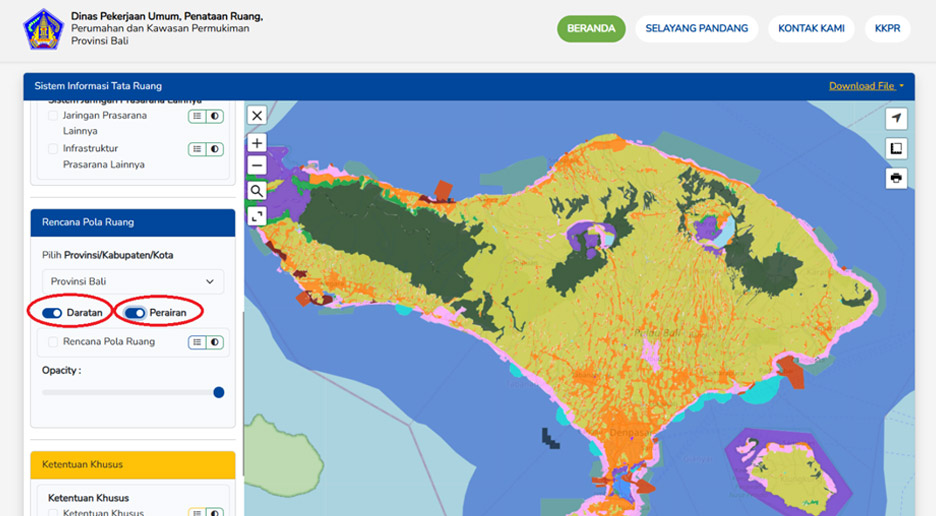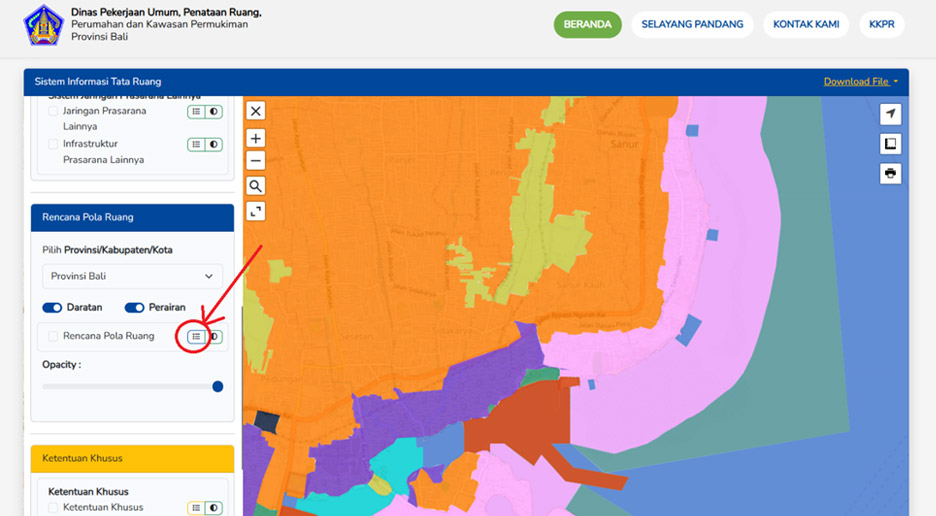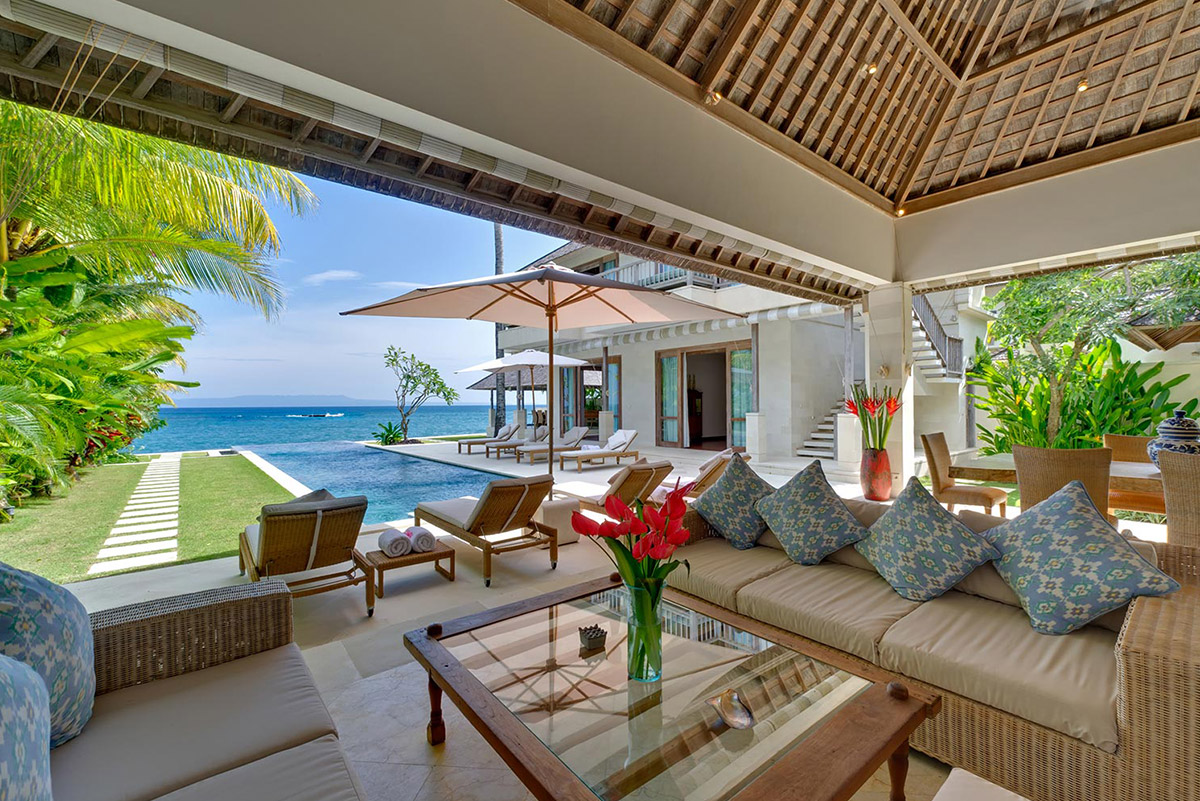By James, Sanur Villa & Land Hunter Uncategorized
Hak Pakai (HP) means the “Right to Use”. Foreign nationals can purchase existing residential freehold Hak Milik property in Sanur or Bali, using the Hak Pakai title, if they reside in Indonesia, have a long-term residence visa – KITAS or KITAP – and plan to use the property as their home.
The great thing about Hak Pakai is that a foreign national can use it to buy freehold property in their own name – if all requirements are met. Unlike Hak Guna Bangunan (HGB) – there is No need to set-up a 100% foreign owned PT PMA company.
Under Indonesia’s Agrarian Laws, Hak Pakai is ultimately the strongest type of property ownership title that a foreign national can acquire in Bali, in their own name, if they reside in Bali and plan to live in the property.
The Hak Pakai ownership title can only be used if there is an existing residential building on Hak Milik freehold land – either a house or an apartment.
Also, it is important to note that buying property under Hak Pakai is not suitable if you plan to use the property for commercial activities, such as a short-term villa rental.
When a foreign national purchases freehold Hak Milik land and an existing residential property in Sanur or Bali, under the Hak Pakai title, you buy the freehold Hak Milik title but you do not receive the freehold Hak Milik status, as you are a foreign national, instead you receive the Hak Pakai status.
Hak Pakai is regulated under Agrarian Law No. 5 year 1960, Articles 41 – 43.
Hak Pakai can also be used by foreigners through a 100% Foreign Owned local Indonesian company – called a PT PMA – that they set-up, control and own.
But do remember – the Hak Pakai title is designed for individuals that want to purchase freehold residential property as their home.
When a foreign national buys freehold Hak Milik residential property under Hak Pakai title the Hak Milik freehold seller is removed from the land agency (BPN) records and the foreign buyer receives a Hak Pakai ownership certificate in their name (or their PT PMA’s name), which is registered at the land agency.
If Hak Pakai is purchased by a foreign national, in their own name, they must be residing in Indonesia & possess either a short-term (KITAS) or long-term (KITAP) residence visa or a retirement visa.
Hak Pakai can not be used to buy empty land for land banking Or to buy empty land for property development purposes.
In Bali there is a minimum purchase price required for a foreign national to qualify to use Hak Pakai title – IDR 5,000,000,000 for a house and IDR 2,000,000,000 for an apartment.
Also based on the Ministry of Agrarian Decree No. 29 year 2016 article 5 (2b) a Hak Pakai property’s land can not be bigger than 2,000 m2 (20 are).
Another key point, a foreign national can only purchase / own 1 residential property under their own name using Hak Pakai title.
Unlike Hak Sewa long leaseholds, when you purchase freehold Hak Milik property in Bali using a Hak Pakai title, your Hak Pakai ownership is stated in the Land Agency (BPN) records & you receive a Hak Pakai certificate from the land agency.
As part of the Hak Pakai purchase, the freehold Hak Milik land ownership is transferred from the seller – who is removed from the Land Agency records – to the government.
The government then grants you the Hak Pakai Right to Use title for a duration of up to 80 years, including renewals of the title.
Hak Pakai property can be transferred or sold to others (including other foreigners if they qualify), inherited, leased out, it can also be used to gain a mortgage etc.
The brilliant thing about Hak Pakai is that if you ever sell the property to an Indonesian citizen, as part of the sale process the Hak Pakai title is converted back into Hak Milik freehold title for the new Indonesian owner.
For this reason, value-wise, Hak Pakai property is treated the same as owning Hak Milik freehold property.
Ultimately Hak Pakai is designed to provide security to foreigners residing in Indonesia, it is not designed for commercial properties that are let out as vacation rentals / used for commercial activities.
If you plan to use the property commercially, do not purchase it using Hak Pakai, purchase it via a 100% foreign owned local Indonesian company (called a PT PMA) either under a Hak Sewa long leasehold or a HGB title, so that you can apply for the necessary Pondok Wisata (up to 5 bedrooms) or Hotel license (more than 5 bedrooms).
Key Points About the Hak Pakai Property Title
- Foreigners can legally & safely buy residential property in Sanur or Bali under the Hak Pakai title, in their own name, if they possess a KITAS or KITAP residency visa or a retirement visa.
- A 100% Foreign Owned local Indonesian company – called a PT PMA company – can also buy residential property in Sanur or Bali under the Hak Pakai title.
- Hak Pakai can only be used to purchase freehold Hak Milik land that already has a residential property built on it.
- Therefore, the Hak Pakai title allows a foreign national to purchase, in their own name, Hak Milik freehold land with an existing residential property on it. However, as a foreign national is not allowed to own Hak Milik freehold status they receive Hak Pakai status instead.
- In Sanur or Bali the minimum purchase price for a house to be bought under Hak Pakai is IDR 5 billion and the land can be no larger than 2,000 m2.
- A foreign national can only own 1 property under Hak Pakai title in their name.
- Hak Pakai is designed for foreign nationals that want to buy residential property that they live in.
- Hak Pakai should Not be used to buy commercial property, such as a villa rental.
- When you purchase freehold land with an existing residential property under Hak Pakai title, the seller is removed from the Land Agency records and you receive a Hak Pakai title certificate.
- You are basically buying the freehold land But the freehold land ownership is transferred & placed under the government, for the duration of the Hak Pakai title, and the government then grants the foreign owner the Hak Pakai title over the land and property.
- The total Hak Pakai title duration is for 80 years, including renewals of title.
- When selling Hak Pakai residential property to an Indonesian citizen it is converted back into Hak Milik freehold status for the new Indonesian owner.
- Therefore, unlike Hak Sewa long leaseholds, the value of Hak Pakai property does Not reduce over time as it gets closer to the expiry of the Hak Pakai title term, as it can be converted into Hak Milik freehold title if sold to an Indonesian citizen.
- For this reason, value-wise, Hak Pakai property is considered the same as Hak Milik freehold property.
- When buying property under Hak Pakai title, a Sale & Purchase Agreement is executed & you receive a Hak Pakai certificate, in your name, which is registered at the Land Agency (BPN).
- A Hak Pakai purchase is executed and notarized by a PPAT Notary and is fully protected and valid under Indonesia’s constitution / Agrarian Laws.
- Buying residential property under Hak Pakai title is considered a very safe way for a foreign national to purchase real estate in Sanur or Bali, however it comes with more costs vs Hak Sewa as the notary must convert the Hak Milik freehold title into Hak Pakai title.
- The Hak Pakai title can be transferred or sold to others, inherited, leased out, it can also be used to gain a mortgage etc.
- It is the closest a foreigner can get to owning Hak Milik freehold residential property in Bali, under their own name.
How Long is a Hak Pakai Ownership Title?
A Hak Pakai title that is granted over Hak Milik freehold land, is initially valid for 30 years, can be extended for 20 years, with a relatively small fee being payable to the government and can then be renewed for another 30 years.
This gives the Hak Pakai titleholder exclusive rights to the land and buildings built on it for up to 80 years.
When a foreign national purchases Hak Milik freehold land with a residential property built on it, from an Indonesian citizen, using Hak Pakai title, the notary will arrange for the freehold status to be placed under the control of the government. The government will then grant the foreigner the Hak Pakai title over the land and building.
A major benefit of Hak Pakai ownership, is that if the Hak Pakai property is ever sold by the foreign owner to an Indonesian citizen, it is converted back, as part of the sale process to the new Indonesian owner, into Hak Milik freehold status.
Because of this, value-wise, a Hak Pakai ownership title is seen as comparable to freehold Hak Milik ownership.
Please note, if a foreign citizen owns Hak Pakai property and stops being a resident of Indonesia during the term of their Hak Pakai ownership, he/she is required by law to transfer/sell their Hak Pakai residential property to an eligible third party, within one year of their residency expiring.
Property purchased under Hak Pakai title provides the owner full rights. A Hak Pakai Right to Use title can be sold, gifted, exchanged, leased out or encumbered by a mortgage. It can be passed on to heirs (including foreigners) should the foreign owner die.
Freehold Hak Milik land with an existing residential building on the land, can be purchased in Bali, under Hak Pakai title, very safely and legally by a foreign national that is residing in Bali, in their own name, for 80 years (including renewals).
But Hak Pakai property can not be used for commercial activities such as short term holiday bookings.
Also please note that there are extra costs for processing a Hak Pakai title status, such as converting the freehold Hak Milik property status into Hak Pakai status.
Your notary can explain if purchasing under Hak Pakai title is recommended / available to you based on your personal situation.
The Extra Costs a Buyer Pays – on Top of Price – when Buying Under Hak Pakai Title
When a foreign national buys property under Hak Pakai title, the buyer pays the Bea Perolehan Hak atas Tanah dan Bangunan (BPHTB), or “land and building acquisition duty”.
The BPHTB is currently set at 5% of the higher of the government defined value of the property (NJOP) / Or the declared purchase price.
The seller on the other hand will have to pay the seller’s tax called PPH (or Pajak Penghasilan) amounting to 2.5% of the higher of the government defined value of the property (NJOP) / Or the declared purchase price.
Often notaries will suggest a declared purchase price that is lower than the actual purchase price… but it must always be higher than the government defined value of the property, as otherwise the purchase could be audited.
The buyer would usually choose the notary that is used and in turn the buyer would typically be expected to pay the costs associated with the notary’s services.
The notaries service fee is actually defined by law, Article 36 of Law No. 30 of 2004 concerning Notary Positions:
- For transactions below IDR 100 million: the notary fee is 2.5% of the transaction value
- For transactions between IDR 100 million and IDR 1 billion: the notary fee is 1.5% of the transaction value
- For transactions above IDR 1 billion: the notary fee is 1% of the transaction value
Therefore, if the purchase price was IDR 8,500,000,000 the notary fee would be 1% = IDR 85,000,000.
According to Article 1320 of the Civil Code, the buyer & seller should agree who pays the notary fee. So if the buyer and seller agree to split the fee, as part of the deal… that’s totally fine.
But typically the notary fees are covered by the buyer.
If the seller has used a real estate agent, any commission due to the real estate agent for the sale of the property is the responsibility of the seller.
So in general, if a buyer purchases residential property for sale in Sanur or Bali under Hak Pakai title, on top of purchase price, the main purchase costs that the buyer can expect to pay are the notary fee, which is usually 1% of the transaction value & also the government purchase tax at 5% of the declared purchase price.
There are various other documentation related fees that the buyer will also pay, which are generally negligible, there is also the fee for changing the freehold land title from Hak Milik status into Hak Pakai status, which the buyer will also pay, but again this is usually not a large cost in the grander scheme of things.
Items Your Notary Should Cover When You Buy Property Under Hak Pakai Title
When you buy existing residential property via the Hak Pakai title in Sanur or Bali, make sure that you ask the notary to provide you with a copy of the sellers freehold Hak Milik land certificate that relates to the land and property.
The notary must also confirm that the land certificate is valid.
The land certificate will state the name of the current Hak Milik freehold owner & also the land status.
You must make sure that the person selling the property to you, as the freehold owner, is the same person as stated on the land certificate.
Make sure you take a copy of their KTP ID card and Kartu Keluarga (family card) for your records and also, as best practice, video & photograph the Hak Pakai sale & purchase agreement signing, in the notary’s office, and save these for your records.
If the person stated on the Hak Milik freehold land certificate has passed away or is different to the person that is signing the sale & purchase agreement, this is a BIG red flag & you must immediately seek the notaries advice.
The Notary will then need to get extra documents signed and permissions documented, to ensure that you have a clean Hak Pakai purchase.
It is common in Bali for the person stated on the Hak Milik freehold land certificate to have passed away and the freehold land to have been automatically inherited by the persons heir or heirs… without updating the land certificate with the new ownership name(s).
If this has happened, the notary must get the signed permission of all possible legal heirs – there could be many – for the Hak Pakai sale & purchase agreement to be safely executed free from potential challenge in the future from external 3rd parties.
For example, the person stated on the land certificate has passed away and the land has been inherited, by law, by his 3 sons. 1 of his sons is selling you the property… but he has 2 brothers that are not party to the agreement – they could easily & legally contest the sale.
Also in Indonesia, a husband and wife, without a prenuptial or postnuptial agreement, have shared property. Therefore, they must both sign a property sales contract.
So, if the seller is married, make sure that their spouse also signs the sale & purchase agreement to confirm their acceptance of the sale and to ensure there are no potential headaches later on.
If the seller can not write, they can legally sign and validate the sales documents using their fingerprint.
Also make sure that the notary confirms the property has guaranteed access rights to public roads. As if not, this is a big potential issue.
If you are buying an existing Hak Pakai titled property in Sanur, or Bali, make sure that you ask the notary to confirm that the building already has the required PBG (Persetujuan Bangunan Gedung) and SLF (Sertifikat Laik Fungsi) building permits.
Before 2021 these permits were combined and called the IMB (Ijin Mendirikan Bangunan).
Again, take copies of the PBG and SLF permits.
If you are buying Hak Milik freehold property under Hak Pakai title the notary should also confirm that there are no other property ownership interests registered against the land, such as a HGB title and that there are no other encumbrances against the land / property such as mortgages or debt.
The notary must confirm that there are no court cases or disputes registered against the land & property.
The notary should confirm that all annual land and building taxes (PBB) for the property are fully paid and up to date. If there are any unpaid PBB taxes this should be cleared by the notary, as part of the purchase and the seller will bear responsibility for this cost.
Make sure you only transfer the purchase monies to the verified freehold Hak Milik seller. If the seller asks you to transfer the money to a different person – this is a BIG red flag, you must consult with the notary 1st. They will then need to issue extra documents / receipts to confirm that the seller has received the money.
Often if the seller is elderly they will not have a personal bank account but one of their children does – and they may ask that the money be transferred to their son or daughter. Not a problem, but get the extra papers needed to verify that the freehold Hak Milik seller authorizes their child to receive the purchase monies on their behalf.
Lastly, if you are buying residential property under Hak Pakai title in Sanur or Bali, ask the notary to confirm the land zoning that applies to the land, and confirm that the property complies with the zoning regulations.
Do not buy Green Zone land & property as this is designated for agriculture – the building will not have the required building permits.
The notary must confirm all of these items to you before you commit and sign the Sale & Purchase Agreement & make payment to the seller.
A good notary will cover all these due diligence items automatically.
To be 100% legally enforceable and airtight, a Hak Pakai purchase agreement must be issued in the Indonesian language, as per Indonesian law.
As a foreign buyer you can & should ask for a certified translation of the Bahasa Indonesia document into the English language.
By taking the steps above, buying existing residential property under Hak Pakai title, is a very safe route for a foreigner to take in Sanur or Bali.
And value wise it is seen as comparable to purchasing Hak Milik freehold status.
James is passionate about Bali & everything to do with real estate! He is a long-term permanent resident of Sanur, Bali and he helps out-of-town Property Buyers find & buy their dream villa, house or plot of land for sale in gorgeous Sanur or the nearby East Coast of Bali.
